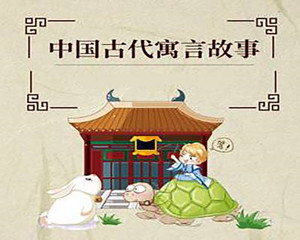古代寓言原是民间口头创作,文学体裁的一种。含有讽喻或明显教训意义的故事。它的结构简短。主人公可以是人,可以是动物,也可以是无生物。多借用比喻手法,使富有教训意义的主题或深刻的道理在简单的故事中体现,而还需要自己去理解,思考,这就是和西方寓言的不同之处。

《古代寓言·过手便酸》
昔苏秦父母诞辰,伯子捧觞称寿!叹曰:“好佳酿。”及季子亦捧觞称寿,骂曰:“酿酒”。
季子妻乃从伯姆借酒一觞,复骂曰:“酿酒。”
季子妻曰:“这是伯姆家借来的。”
翁叱之曰:“你这不行时的人,过手便酸。”
——《雪涛小书》
Sour wine
Su Qin had not been successful in his quest for an official post. One day a feast was held to celebrate his father's birthday.
When Su Qin's elder brother presented a cup of wine to the old man, he exclaimed on its excellence. But when Su Qin presented a cup, his father pulled a wry face, and said, "Oh, how sour!"
Su Qin's wife thought perhaps the wine was really sour, so she borrowed some wine from the brother. But when she presented it, the old man still declared it was sour.
"This is the same wine that Su Qin's elder brother gave you," she said.
"You luckless people! Even sweet wine turns sour when you touch it," scolded the old man.
Notes of Xue Tao
(杨宪益、戴乃迭 译)
更多精品翻译素材,敬请关注可可英语。











